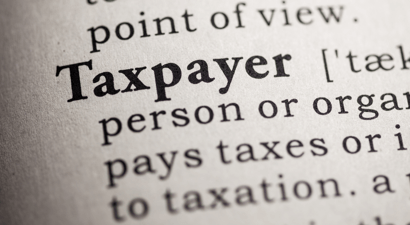Locus Standi for Interested Parties in Legal Proceedings with SARS
In the unreported case of Sariette Groenewald v Commissioner for the South African Revenue Service (“the Commissioner”) case no: 4049/2016, the Gauteng High Court had to determine whether a sole member of a close corporation (“the intervening party”) had legal standing in an application. Following the Taxpayer's liquidation on 28 May 2015 a creditors meeting was held where SARS submitted its claims under the liquidation process for assessed taxes owed by the Taxpayer.
The Taxpayer’s accountants objected to SARS’ claims, as they are entitled to do under the liquidation process and the Master of the High Court upheld the Taxpayer's accountants' objections and disallowed SARS’ claims. After the Master’s disallowance, SARS applied for an order in terms of section 151 of the Insolvency Act 24 of 1936 (“the Insolvency Act”) to the High Court to review and set aside the Master's decision and allow SARS' claims.
SARS’ application was not opposed by the Taxpayer’s accountants or liquidators, however the intervening party submitted that SARS’ application should be disputed as according to the intervening party SARS was incorrect in disallowing VAT input tax deductions and, further to this, SARS had not proven its claims as required under the Insolvency Act.
The intervening party then submitted an intervening application in her capacity as the sole member of the Taxpayer opposing SARS’ application. SARS opposed the intervening application on the basis that the intervening party had no locus standi as the application was an extension of the creditor’s meeting where the intervening party also had no locus standi (a process provided for under the Insolvency Act).
The intervening party argued that it has a clear and substantial reversionary interest in the outcome of the application and the outcome of the decision by the Master.
The Court held that the intervening party had a ‘reversionary interest’, which is the interest that an insolvent would have in the insolvent estate and its proper administration. This interest entitles the insolvent to sue on its own behalf if the trustee neglects or refuses to do so.
The Court held that, as the intervening party is the sole member in the Taxpayer, she will have an entitlement to any residue of the Taxpayer’s estate remaining after the Taxpayer has been wound-up. As such, the intervening party has locus standi to protect any benefit to which the Taxpayer’s insolvent estate may be entitled.
The case has confirmed that a person that has a direct and substantial interest in a matter may be joined as a party to any legal proceedings instituted by SARS regarding that matter.
A member's or shareholder's interest could also extend to the personal liability provisions for tax purposes, which is a point to consider when dealing with SARS' legal proceedings.





